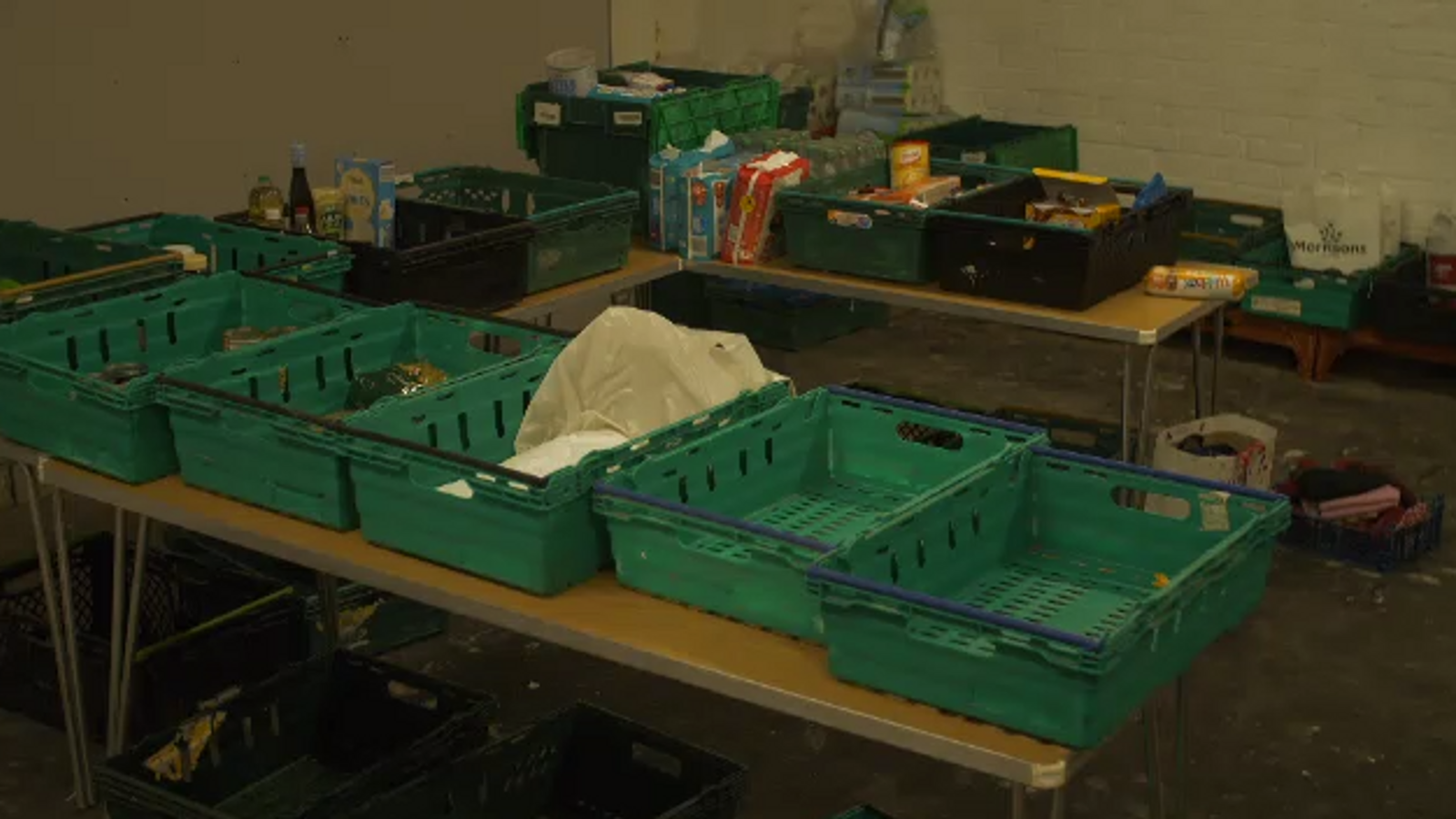“We absolutely ran out of food at this food bank,” says manager Tanisha Bramwell.
“I was shocked in some ways but in another, no. This is something that I should have expected because our list has become so overwhelmed and people are reaching out so much more.”
The food bank volunteers admit it’s a worrying sign of just how bad things are in this cost of living crisis when they themselves are struggling.
Tanisha reveals for the first time it means they’ve had to turn away hungry people.
She shows me the stockroom, which she says was pretty much empty when they ran out of money.
“A week ago we had no items left. I think we had five loaves of bread and very little tinned food. The essential items we put in food parcels – they weren’t here anymore. We were out of options.”
Tanisha says they put out an urgent appeal and got a “lifeline” to enable them to shop and re-start deliveries.
Boris Johnson no-confidence vote live: Second resignation rocks Number 10; Tory rebels think they could oust prime minister; Theresa May votes in a ball gown
Boris Johnson reminds Tory MPs of sweeping electoral victory under his leadership ahead of confidence vote
Birmingham: Police investigate death of two-day-old baby
But she says they’re “taking each day as it comes” and are lurching from one week to the next.
Part of the problem is the donors the food bank relies on have themselves fallen on hard times.
“It’s very hard because we’re in a very unpredictable situation and a situation we haven’t been in before,” says Tanisha.
“This is two years after a global pandemic. Businesses don’t have the capacity to donate anymore. Funding streams have ended and although the needs are still there the support system isn’t.”
Drastic change
Ziggy Rafiq, who has run a corner shop in Dewsbury for more than 40 years, used to donate to Tanisha’s foodbank but admits he can’t afford to do it anymore.
He proudly says his shop is at the “heart” of the community.
But he says things have changed “drastically”.
“I made the last donation a couple of months ago. But we can’t afford it. Simple as,” he says.
“I used to donate a lot of grocery; a lot of pop bottles and crisps and stuff like that from the shop. When the children were off school we used to sponsor sports events to keep them occupied.
“We’ve stopped it because we can’t afford to do it anymore. The budget is so tight.
“We feel horrible because we can’t donate the stuff we’d like to donate.”
Read more:
The food club helping residents whose ‘anxiety is through the roof’
One in four women and girls struggling to buy sanitary products
See how much your spending has increased over the past five years
Rafiq explains the shop simply isn’t making enough money.
Wine at £4.99 a bottle
He tells us soaring energy costs leave them with a £500-a-week bill because they needed to power big fridges in the shop.
He’s tried all sorts of ways to keep the shop ticking over – including getting rid of higher priced food and alcohol as they simply aren’t selling anymore.
The cheapest wine he sells now is £4.99 a bottle.
They’ve also reduced the hours they are open because they don’t get the trade. Years ago, the corner shop was open from 7.30am until 10.30pm but now it’s 8am until 8pm.
“We’re sat here doing nothing,” says Ziggy.
Higher fuel prices, less passing trade
They keep less stock in the shop as it takes longer to sell and they can’t afford to have it go past its sell-by-date.
Ziggy says “you see a lot” while working in a shop.
He says fewer people are driving around – he thinks because of petrol and diesel prices. For Ziggy that means there’s less passing trade.
“There’s no money about. It’s the very worst it’s ever been. We’ve never known it like this. It’s very, very bad,” he says.
But there’s another side to the cost of living crisis – which shows the repercussions of people’s financial desperation.
Other shopkeepers in Dewsbury tell us petty crime has soared.
Najeeb Rawufi says thefts at his shop have tripled over the past few months.
They sell pretty much every small item you can think of – and outside the shop there are all sorts of things, from buckets to sweeping brushes, piled up.
“Usually they just come and grab something,” he says, gesturing to the goods for sale.
“It’s very cheap as well – for £2 or £3 – and they walk away with it.”
Customers arguing over prices
In the same shop, another worker tells us customers argue about the prices – leaving staff resigned to keeping profit margins in some cases down to just a few pence. They can’t risk people not buying or upsetting them so they won’t come back.
Neighbouring food shop manager Ahsan Hussain says he’s had to move the most expensive products – such as baby milk – to the front of the shop where he can keep an eye on it.
He recounts how a woman walked in and stole baby milk, stashing it away in her pram.
A delivery driver tells us he can’t even leave small boxes of stock unattended in the back of his lorry if it’s unlocked – because they get stolen.
Dil Raish gestures to multi-packs of drinks, saying: ”I have to take one out (from the lorry) and close the doors.”
I ask him if he thinks people are stealing because of the cost of living crisis.
“Hundred per cent,” he says.






















